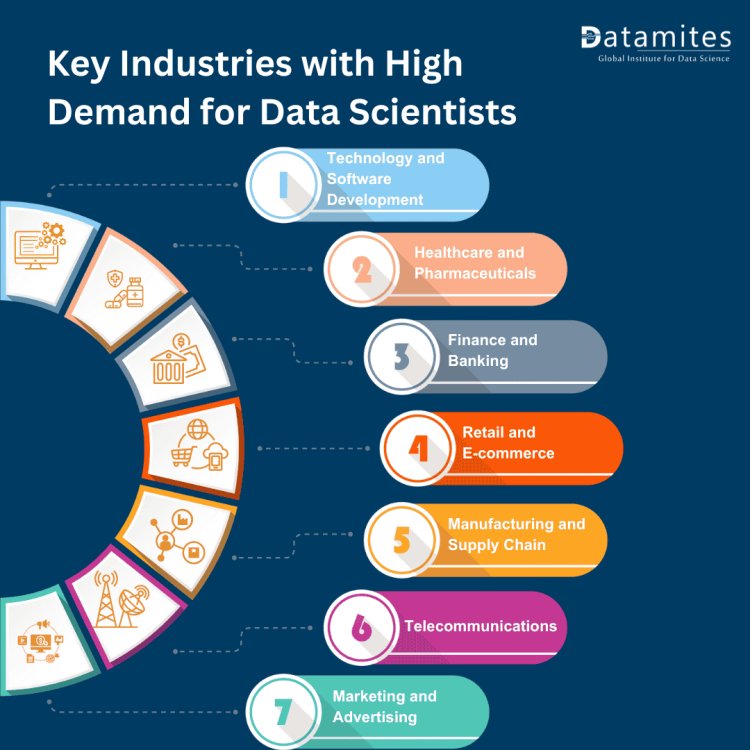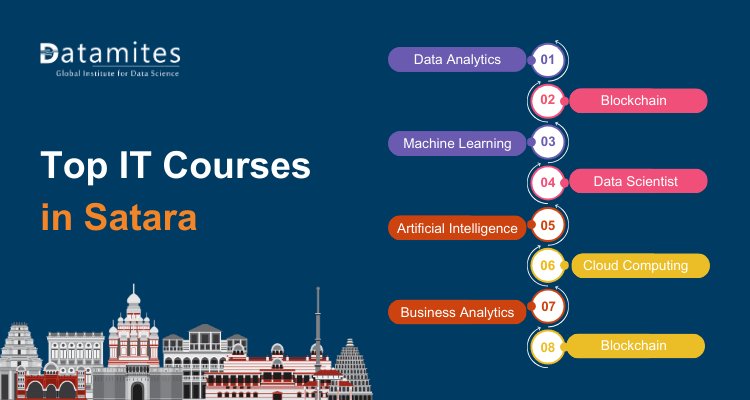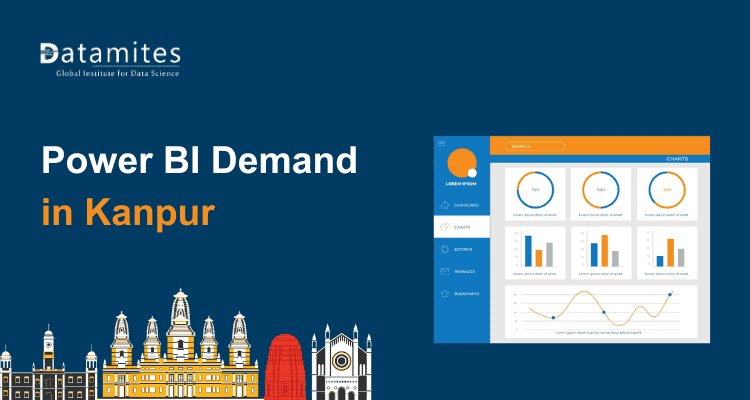Exploring Industries with High Demand for Data Scientists

In a world increasingly driven by data, the demand for skilled data scientists has skyrocketed. According to the World Economic Forum, the number of data-related jobs is projected to grow by 27% by 2025. This remarkable expansion highlights the crucial role that data scientists have in converting raw data into meaningful insights. As businesses and organizations grapple with vast amounts of information, they rely on data scientists to help them navigate this complex landscape.
Data scientists are essential in today’s data-driven environment. They harness the power of data to inform decision-making, improve operations, and drive innovation across various sectors. In this blog post, we aim to explore the diverse industries actively seeking data science talent and shed light on the skills and training required to thrive in this exciting field.
The Rising Demand for Data Scientists
Data generation is at an all-time high, with organizations across all sectors producing terabytes of data daily. The explosion of big data, coupled with advancements in technology, necessitates a skilled workforce capable of analyzing and interpreting this information. As companies aim to become more data-driven, the need for data scientists has significantly increased.
Market Growth: The global data science market is expected to reach $140.9 billion by 2024.
Job Opportunities: Data science roles have seen an annual growth rate of 15%.
To meet this demand, individuals must undergo comprehensive training, such as pursuing data science certification course, or engaging in hands-on data science training. These educational programs equip aspiring data scientists with the necessary skills to navigate the data landscape effectively.
Skills in Demand
As the demand for data scientists grows, so does the need for specific skills and tools. Companies are actively looking for professionals who are skilled in:
- Programming Languages: Knowledge of Python and R is crucial for data manipulation and analysis.
- Machine Learning: Familiarity with algorithms and frameworks, such as TensorFlow and Scikit-learn, is often a requirement.
- Data Visualization: Proficiency in tools like Tableau or Power BI enhances the ability to communicate insights effectively.
The job market also reflects these skills, with many organizations prioritizing candidates who demonstrate a strong understanding of data science methodologies and tools.
Job Market Trends
The job market for data scientists remains robust. Recent studies indicate that the average salary for a data scientist in the United States is $113,000, with those who have more experience earning considerably higher amounts. The high salary potential and growing number of job openings make data science an appealing career choice.
Industry Demand: Over 50% of companies now have dedicated data science teams.
Salary Growth: Salaries for data science positions have increased by up to 30% in the last five years.
With these favorable conditions, it's no wonder that many are considering a career in data science.
Refer these articles:
- Top Data Science Certifications to Boost Your Career
- Data Science Project Lifecycle
- Data Science Applications

Key Industries with High Demand for Data Scientists
Data science has become integral across various industries, driving innovation and efficiency. Here’s a closer look at the key industries with high demand for data scientists, as outlined in your points:
1. Technology and Software Development
The technology sector is at the forefront of data science applications, with companies leveraging analytics to optimize software development and enhance user experiences.
- User Behavior Analytics: Companies like Google and Facebook analyze vast amounts of user data to refine algorithms, allowing for personalized services that increase user engagement.
- Product Development: Data-driven insights guide the design and enhancement of tech products, ensuring they meet user needs and market trends.
- Demand Insight: Major tech firms consistently seek data scientists to drive innovation and maintain competitiveness, making this industry a top employer for data science professionals.
2. Healthcare and Pharmaceuticals
Data science is revolutionizing healthcare, improving patient outcomes and streamlining research processes.
- Predictive Analytics: By analyzing patient data, data scientists can predict health outcomes and create tailored treatment plans, enhancing the quality of care.
- Case Studies: For instance, the integration of data analytics in hospitals has resulted in a 20% reduction in patient readmission rates, showcasing the practical benefits of data science.
- Demand Insight: The complexity of healthcare datasets necessitates skilled data professionals, making this a critical area for data science applications.
3. Finance and Banking
The finance sector increasingly relies on data science for tasks like risk assessment and fraud detection.
- Algorithmic Trading: Data scientists develop algorithms that analyze market trends, informing trading decisions and strategies.
- Fintech Innovations: Companies like Square and Stripe use data analysis to enhance their payment solutions and provide insights into consumer behavior.
- Demand Insight: With the rising complexity of financial data, the demand for data scientists continues to grow, particularly in risk management and compliance roles.
4. Retail and E-commerce
Data science has transformed retail by providing deep insights into consumer behavior and optimizing inventory management.
- Consumer Behavior Analysis: Retailers analyze purchasing patterns to refine marketing strategies and enhance customer engagement.
- Success Stories: Companies like Amazon utilize data-driven marketing strategies to significantly increase sales and customer loyalty.
- Demand Insight: The integration of data science into retail highlights its importance in understanding and responding to consumer needs, creating high demand for data scientists in this field.
5. Manufacturing and Supply Chain
Data analytics is crucial in the manufacturing sector for optimizing operations and improving efficiency.
- Predictive Maintenance: Data scientists employ analytics to anticipate equipment failures, thereby minimizing downtime and reducing maintenance costs.
- Operational Efficiency: Insights derived from data help enhance supply chain logistics, leading to reduced waste and improved production cycles.
- Demand Insight: As manufacturers seek to leverage data for competitive advantage, the need for data scientists in this industry continues to grow.
6. Telecommunications
Telecommunications companies utilize data science extensively for customer segmentation and optimizing network performance.
- Customer Insights: By analyzing demographic data, telecom companies can tailor their services to better meet the needs of specific customer groups.
- Network Optimization: Data science plays a critical role in improving network reliability and performance, with companies like AT&T and Verizon continuously seeking improvements.
- Demand Insight: The emphasis on leveraging data for operational improvements makes data scientists invaluable assets in telecommunications.
7. Marketing and Advertising
Data-driven marketing strategies are vital for businesses aiming to engage customers effectively.
- Targeted Advertising: Data science enables the delivery of personalized advertisements based on detailed user behavior analysis, increasing conversion rates.
- Campaign Effectiveness: Data scientists assess the success of marketing campaigns, allowing businesses to refine their strategies for better results.
- Demand Insight: As businesses increasingly prioritize data in their marketing efforts, the demand for skilled data professionals continues to rise.
Key Techniques and Methodologies of Data Scientists
Here’s a comprehensive overview of the key techniques and methodologies that data scientists utilize, organized into three main categories: Data Preparation and Cleaning, Exploratory Data Analysis (EDA), and Predictive Modeling and Analysis. Each section highlights its importance, common techniques, and best practices.
A. Data Preparation and Cleaning
Data preparation is a critical first step in any data science project. Clean data guarantees precise analysis and dependable results.
- Importance of Clean Data: Poor data quality can lead to incorrect insights and decision-making.
- Common Techniques: Techniques such as removing duplicates, handling missing values, and standardizing formats are crucial for effective data cleaning.
By prioritizing data preparation, data scientists set the stage for successful projects.
B. Exploratory Data Analysis (EDA)
Exploratory Data Analysis is essential for understanding data characteristics and relationships.
- Tools and Techniques: Data scientists commonly use Python libraries like Pandas and visualization tools to perform EDA.
- Importance of EDA: A thorough EDA informs model selection and helps identify potential issues within the dataset.
Mastering EDA techniques is vital for data scientists to ensure project success.
C. Predictive Modeling and Analysis
Predictive modeling lies at the heart of numerous data science applications, enabling organizations to anticipate future trends.
- Overview of Algorithms: Common algorithms include regression, decision trees, and neural networks.
- Best Practices: Model evaluation techniques, such as cross-validation and performance metrics, are essential for ensuring model accuracy.
Data scientists must stay updated on the latest predictive modeling techniques to remain competitive.
Refer these articles:
- What is Certified Data Scientist Course
- Data Science Career Scope in India
- Data Science Course Fee in India
Skills Required for Data Scientists in Different Industries
Data scientists are essential in various industries, as they harness data to drive decisions and innovation. The skills required for data scientists can vary based on the industry but generally fall into two main categories: technical and soft skills. Here’s a detailed overview of the skills needed:
Technical Skills
Data scientists require a diverse set of technical skills to effectively analyze data, build models, and derive insights. Here’s a detailed breakdown of the essential technical skills for data scientists:
Programming Languages:
Python: Commonly utilized for data analysis, machine learning, and scripting.
R: Preferred for analyzing statistics and visualizing data.
Data Manipulation and Analysis:
- Proficiency in libraries like Pandas and NumPy (Python) for data manipulation.
- Experience with R packages like dplyr and ggplot2 for statistical analysis and data visualization.
Machine Learning:
- Understanding of machine learning algorithms (e.g., regression, classification, clustering) and libraries like Scikit-learn (Python) or caret (R).
Data Visualization Tools:
- Tableau and Power BI: Essential for creating dashboards and visual representations of data.
- Ability to use libraries like Matplotlib and Seaborn (Python) for customized visualizations.
Database Management:
- Knowledge of SQL for querying databases and managing data storage.
- Familiarity with NoSQL databases (e.g., MongoDB) can be beneficial.
Big Data Technologies:
- Understanding of tools like Hadoop and Spark for processing large datasets.
Cloud Computing:
- Familiarity with cloud platforms like AWS, Google Cloud, or Azure for deploying models and managing data.
Data Cleaning and Preprocessing:
- Skills in identifying and handling missing data, outliers, and data normalization.
Soft Skills
Data scientists are often seen as technical experts, but soft skills are equally important for their success. Here are some key soft skills that data scientists should develop:
Communication:
- The ability to convey complex technical concepts to non-technical stakeholders is crucial.
- Strong presentation skills to convey findings clearly through reports and visualizations.
Problem-Solving:
- Strong analytical thinking to tackle complex problems and derive actionable insights.
- Creativity in approaching problems and developing innovative solutions.
Collaboration:
- Ability to work effectively in cross-functional teams, collaborating with business analysts, engineers, and domain experts.
Critical Thinking:
- Evaluating data and insights critically to identify trends, patterns, and anomalies.
Adaptability:
- Being open to learning new tools and technologies as the field evolves rapidly.
Business Acumen:
- Understanding the industry-specific challenges and opportunities to provide relevant insights.
As data increasingly influences various industries, the need for skilled data scientists continues to grow. By exploring various sectors actively seeking talent, we see ample opportunities for growth and innovation. If you're considering a career in this field, now is the time to invest in a data science offline course, to meet industry demands.
As we’ve explored, the demand for data scientists spans various industries, each presenting unique opportunities for those equipped with the right skills. Whether it’s in finance, healthcare, retail, or technology, the ability to analyze and interpret data has become an invaluable asset. At DataMites Institute, we understand the importance of staying ahead in this dynamic landscape. Our Certified Data Scientist Course not only covers the essential technical skills but also emphasizes industry-relevant applications to ensure our learners are job-ready.
With accreditation from IABAC and NASSCOM FutureSkills, we take pride in delivering a high-quality educational experience that meets industry standards. Additionally, our specialized programs, such as Data Science for Managers and Python for Data Science, provide tailored training to meet the diverse needs of professionals across various sectors.
Join us at DataMites and take the first step towards a rewarding career in data science, where you can leverage your skills to make impactful contributions across industries. The future is data-driven, and we’re here to help you navigate it successfully!





